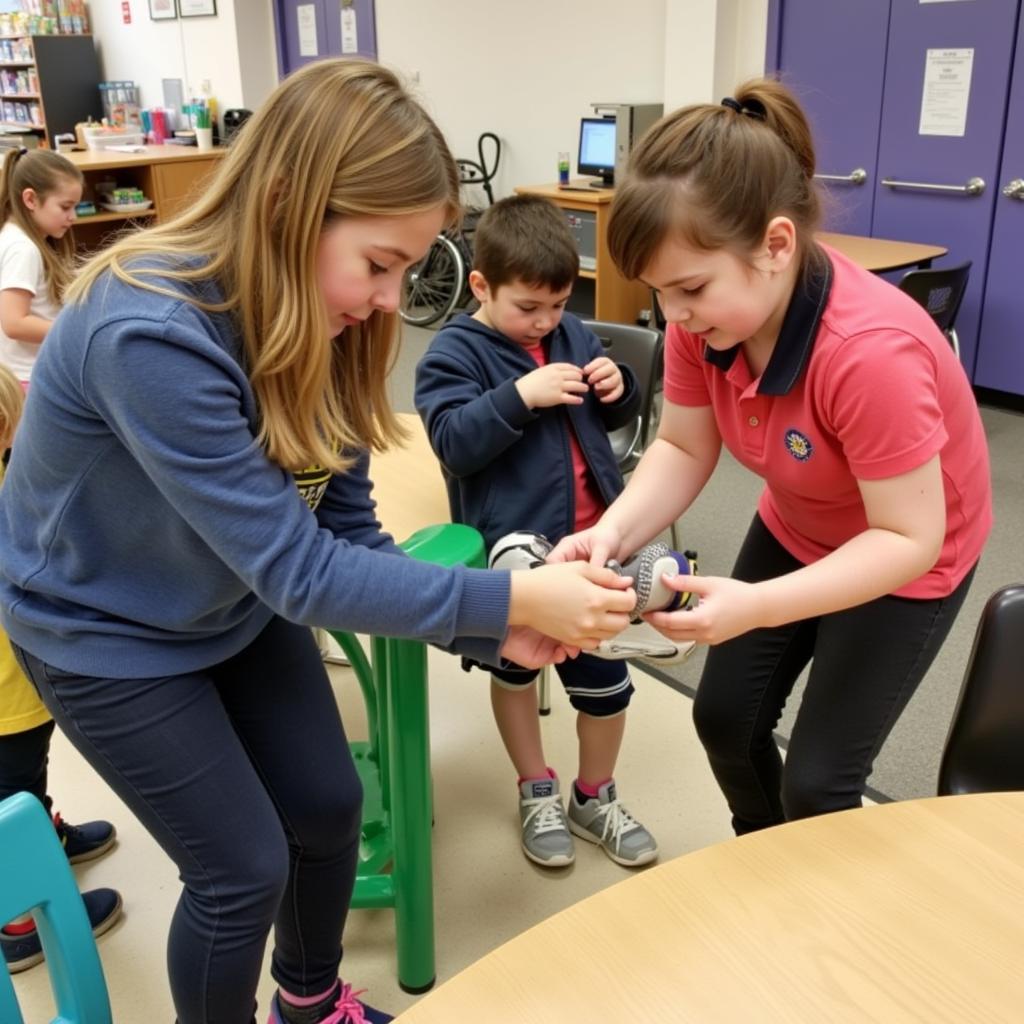Preschool life skills education is a crucial topic in shaping and developing a child’s personality. This article delves into the importance of life skills education for preschoolers, while providing in-depth perspectives on building an effective educational program.
The Importance of Preschool Life Skills Education
Life skills not only help children adapt to their surroundings but also lay the foundation for comprehensive physical, intellectual, and emotional development. The preschool stage is a golden period for forming basic life skills, helping children become more confident, proactive, and responsible in life. Preschool life skills education is considered a long-term investment in a child’s future.
Self-Help Skills
Self-help skills are among the most important life skills for preschoolers. From eating independently and dressing themselves to personal hygiene, these skills help children become self-reliant and reduce the burden on families and teachers. Practicing self-help skills also helps children develop self-discipline and a sense of responsibility.
 Preschool children learning to dress themselves
Preschool children learning to dress themselves
Communication Skills
Effective communication skills help children easily connect with people around them, build good relationships, and integrate into the community. Children equipped with good communication skills will be more confident in expressing themselves, sharing opinions, and resolving conflicts.
Problem-Solving Skills
Preschool life skills education should focus on developing logical thinking and problem-solving abilities in children. Through play and learning activities, children are encouraged to think, explore, and come up with solutions to different situations.
Building an Effective Preschool Life Skills Education Program
Building an effective preschool life skills education program requires close coordination between family, school, and society. The program needs to be designed to suit the age and psychological characteristics of children, and must be constantly updated and innovated to meet practical needs.
Active Teaching Methods
Active teaching methods, which are child-centered, are key to developing life skills for preschoolers. Instead of imposing knowledge, teachers need to create a friendly learning environment that encourages children to explore, experience, and draw their own lessons.
The Role of Family
Family plays an important role in educating children about life skills. Parents need to set an example for their children, and create opportunities for them to participate in social activities and real-life experiences to practice life skills.
Conclusion
Preschool life skills education is an important and necessary task. Investing in life skills education for preschoolers is investing in the future of the country.
FAQ
- Why are life skills important for preschoolers?
- How to cultivate self-help skills for children?
- What is the role of teachers in life skills education?
- What should parents do to support their children’s life skills development?
- What resources are available to support life skills education for preschoolers?
- Which life skills are most important for preschoolers?
- How to evaluate the effectiveness of life skills education?
Common Question Scenarios.
Parents are often concerned about how to teach their children to be independent, how to handle shyness, or how to help their children socialize with friends.
Suggestions for other questions, other articles on the website.
You can learn more about “Montessori methods”, “early education”, and “positive parenting”.